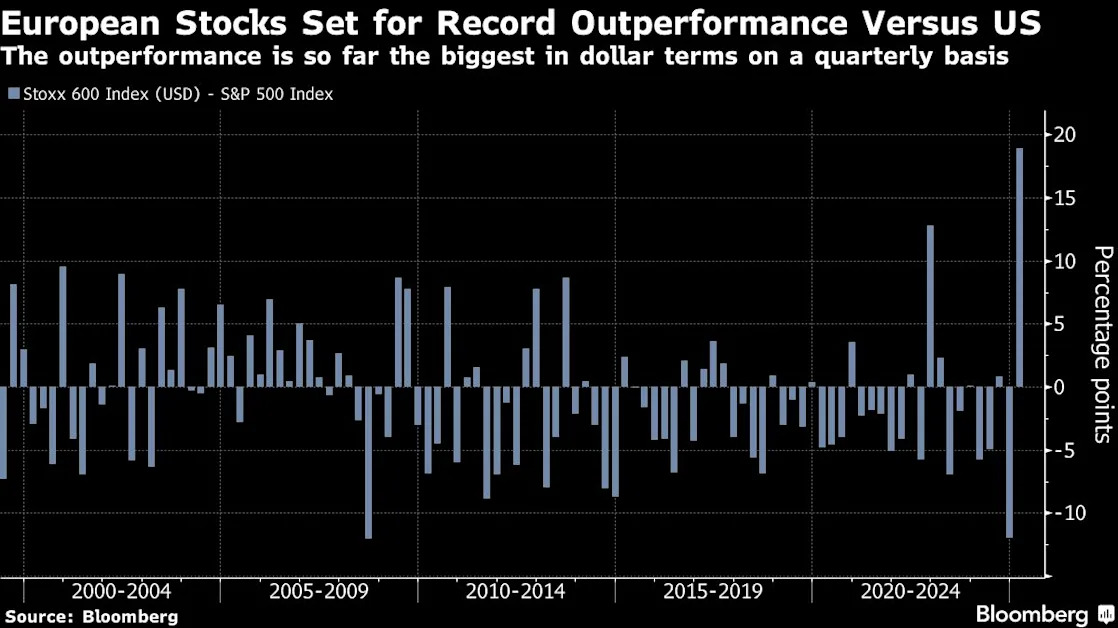In this piece, I evaluated two big-box retailer stocks , Walmart (WMT) and Target (TGT) , using TipRanks’ Comparison Tool to see which is better. A closer look suggests a neutral view of Walmart and a bullish view of Target.
Walmart operates both retail and wholesale stores through its domestic and international Walmart stores and U.S. Sam’s Club locations and sells via its website and mobile apps. Meanwhile, Target is a general merchandise retailer with stores in all 50 states and the District of Columbia.
Shares of Walmart have soared more than 40% year-to-date , accounting for nearly all of the stock’s 42.5% one-year gain. The stock popped 6.6% on Thursday after the company’s latest earnings report was released. On the other hand, Target stock is up just 1% year-to-date but up 11.6% over the last 12 months. In fact, Target seemed to have gotten a bit of a benefit from Walmart’s earnings report, rising some 4% on Thursday.
With such a dramatic difference in their year-to-date performances, it’s no surprise that there’s a sizable gap in their valuations. We’ll compare their price-to-earnings (P/E) ratios to gauge their valuations against each other and that of their industry. For reference, the multiline retail industry is trading at a P/E of 30.9x versus its three-year average of 35.8x.
Walmart (NYSE:WMT)
At a P/E of 29.9x, Walmart is trading roughly in line with its industry. As mentioned earlier, the stock soared on Thursday and is now at an all-time high. Due to the record-high stock price and high valuation, Walmart seems a little too hot to handle right now, suggesting a neutral view might be appropriate.
Following Thursday’s earnings release, Walmart stock soared dangerously close to overbought territory, surpassing a Relative Strength Index reading of 69. Anything over 70 is considered overbought, and if Walmart shares continue to rise, they could shift into that territory.
It’s easy to see why Walmart stock is so hot right now. In the latest quarter, Walmart posted adjusted earnings of 67 cents per share on $169.3 billion in sales versus expectations of 65 cents per share on $168.57 billion in revenue. Further, comparable-store sales increased 4.2% year-over-year for the quarter excluding fuel, beating analysts’ expectations. At the same time, Sam’s Club saw comparable-store sales rise 5.2% excluding fuel, in line with expectations.
Next, the average ticket size rose 0.6% year-over-year, but that doesn’t take into account the effects of inflation. Interestingly, the Consumer Price Index increased 2.9% year-over-year last month, suggesting Walmart’s average ticket size isn’t keeping up with inflation.
Additionally, the Street seems to have glossed over the guidance miss buried in the earnings release. Despite the rosy recent quarter, Walmart management is more cautious about the second half of the year. For the third quarter, management is calling for adjusted earnings of 51 to 52 cents per share, coming up short of expectations of 54 cents .
This suggests Wall Street could be disappointed down the road, making this look like a possible temporary spike in Walmart’s share price.
What Is the Price Target for WMT Stock?
Walmart has a Strong buy consensus rating based on 27 Buys, three Holds, and zero Sell ratings assigned over the last three months. At $74.11, the average Walmart stock price target implies upside potential of 1.3%.
See more WMT analyst ratings
Target (NYSE:TGT)
At a P/E of 15.9x, Target’s valuation is half that of Walmart’s and the industry’s. In short, the retailer is priced for utter devastation, making a bullish rating look appropriate.
Target has certainly had its share of problems, with one being its lack of significant reliance on groceries. However, this is one issue that’s being rectified, as the retailer has plans to open 300 mega-Target stores featuring expanded grocery sections over the next 10 years .
The company has also gotten in on the types of deep price cuts that have attracted consumers during these high-inflation times, slashing prices on nearly 5,000 products amid its summer rollbacks. The back-to-school shopping season is critical for retailers like Target, and those price cuts stand to benefit it greatly as parents look for clothing deals for their kids while picking up some essentials at the same time.
Target is due to release its next earnings report next week, and the consensus is looking for $2.19 per share in earnings on $25.2 billion in sales. In the year-ago quarter, Target reported $24.8 billion in revenue, so the increase shows a stark contrast from the previous quarter, when sales fell 3% year-over-year.
The comparable-store sales numbers will also be critical, and in the last quarter, Target was showing signs of light, posting a 4.8% increase that meaningfully outperformed expectations for a 4.18% increase. Growing online sales and foot traffic boosted Target’s results in the last quarter, and we should expect more of the same in next week’s report.
In fact, Walmart’s latest earnings report suggests we could see more of the same from Target next week, making this look like a great time to buy the recent dip in TGT.
What Is the Price Target for TGT Stock?
Target has a Moderate Buy consensus rating based on 16 Buys, 11 Holds, and one Sell rating assigned over the last three months. At $176.76, the average Target stock price target implies upside potential of 24.8%.
See more TGT analyst ratings
Conclusion: Neutral on WMT, Bullish on TGT
The battle between Walmart and Target has been one for the ages for quite some time, and that’s not going to change. However, Target’s deeply depressed valuation makes it too cheap to ignore. Even if the company comes up short on guidance like Walmart did, Target’s long-term share-price gains of 81% over the last five years and 202% over the last 10 demonstrate its staying power through thick and thin.
On the other hand, Walmart also has attractive long-term share-price gains of 95% over the last five years and 236% over the last 10, but things just look too hot right now around the shares. I’d like to see the price and valuation come down before becoming more constructive.
Disclosure





